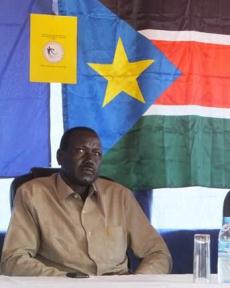IOM supports S. Sudan relief and rehabilitation commission
August 15, 2012 (JUBA) – The International Organization for Migration (IOM) on Monday donated 286 bicycles and 28 motorbikes to aid efforts by the South Sudan Relief and Rehabilitation Commission (SSRRC) to reach its field personnel and gather returnee-related information.

He explained that the IOM “remains committed to its partnership with the Government of South Sudan,” and that “we will continue to provide support and assistance to the Ministry of Humanitarian Affairs and Disaster Management and the RRC.”
Since 2007, IOM has worked in close partnership with the SSRRC to bring relief and assistance to those displaced by conflict and natural disasters. In August 2007 they jointly, initiated a programme to track those returning to Southern Sudan by making direct assessment visits to villages of returnees throughout the country.
The IOM-RRC tracking and monitoring system, which now covers all the 10 states in South Sudan has reportedly assisted in tracking over 1,750,000 returnees in the past five years.
This year alone, the system is said to have tracked at least 116,000 people who returned to South Sudan.
Joseph, Lual Acuil, South Sudan’s humanitarian affairs minister, while speaking at the event, highlighted the importance of the strong partnership between IOM and the government, especially in building the capacity of national staff to enable them respond to returnees’ needs.
“While we consider the benefits of the program, we must remember that we must continually reinforce our capacity to respond to the needs of those who remain in Sudan and wish to return,” he said.
The SSRRC chairperson, Peter Lam Both, said the current humanitarian challenges facing the population can only be properly handled through proper coordination between government and its development partners.
In the coming weeks the IOM and SSRRC will conclude an assessment of basic services in 30 counties of high return in the country. Such areas have been assessed in terms of access to basic social services, such as healthcare, education, and water and sanitation.
The results of this large-scale assessment, IOM says, will help lay the ground for a more coherent and efficient approach to returnee reintegration, which remains a critical gap in South Sudan as countless host communities struggling to absorb the large influx of returnees witnessed over the past two years.
(ST)
